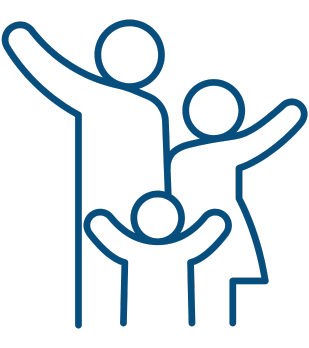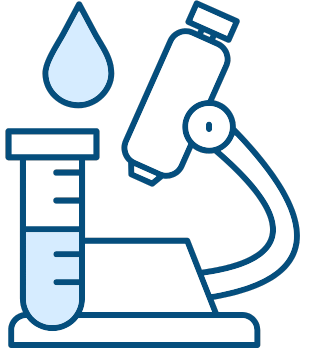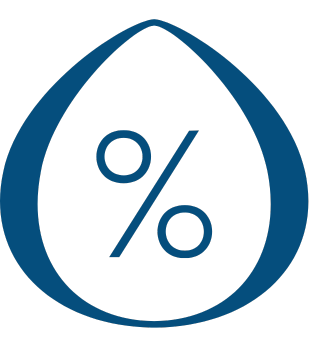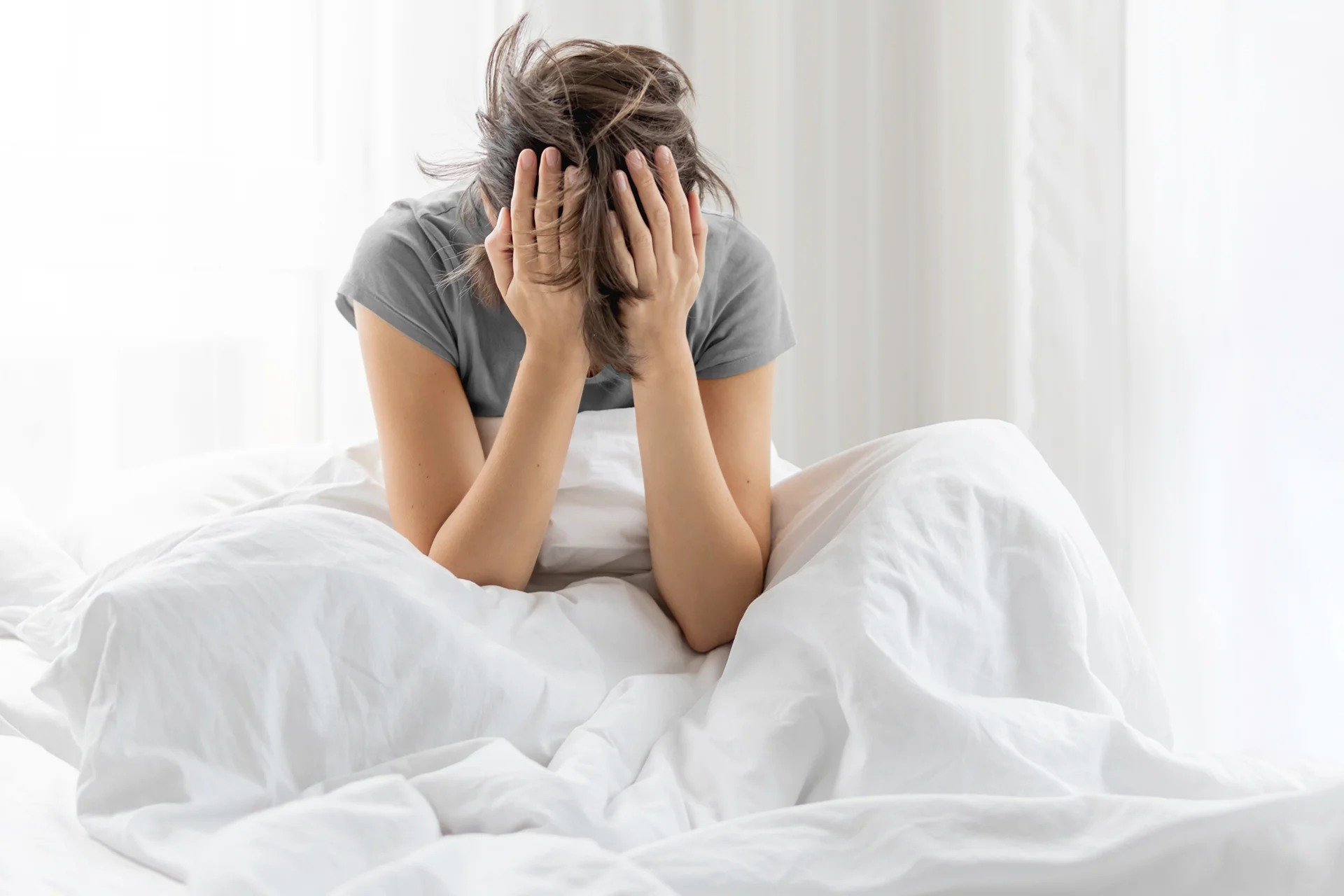We wake up refreshed and rested in the morning, but sometimes we don’t get enough rest. There are usually logical and obvious reasons for sleepiness – you didn’t get enough sleep because of noisy neighbours, it’s too stuffy in the room, it’s a rainy day outside, you ate too much, you didn’t have a cup of coffee, or maybe you’re drowsy because of the time zone difference. In all these cases, daytime sleepiness is perfectly explainable and the solutions are quite simple: go outside, get some exercise, have a cup of coffee, go to bed earlier. But sometimes, the causes of sleepiness can be found elsewhere, especially if the sleepiness is persistent, even after a good night’s rest.
Daytime sleepiness not only interferes with daily activities, but also poses a very serious risk to our health or even our lives. In this article, together with our expert clinicians, we will look at sleepiness and the main causes of daytime tiredness and sluggishness. We’ll also give you practical tips on how to improve your energy levels and health.
Drowsiness – what is it?
Sleepwalking is a condition in which a person experiences a persistent or increased desire to sleep and a general decrease in energy levels during the day. It can be a completely temporary phenomenon caused by insufficient or poor quality rest during the night or a sudden drop in activity.
Sleepiness can affect a person’s concentration, attention and overall productivity. He or she may become completely apathetic, feel weak and find it difficult to concentrate. Sleepwalking may be accompanied by additional symptoms such as eye pain, a feeling of heaviness in the body and headaches.
Although the most common and obvious causes of sleepiness are insufficient or inadequate sleep at night, inadequate rest, stress, physical fatigue or even too much time spent in front of a screen, sleepiness can also signal deeper problems, such as the presence of certain diseases or disorders. Sleepiness can be both transient and chronic, occurring as a symptom of a particular illness.
Sleepiness not only interferes with getting things done or with daytime functioning in general. Often, daytime sleepiness also poses a very serious risk to our health or even our lives. It has been observed that many accidents and disasters at home or at work, where machinery is involved, are caused by drowsiness and the reduced alertness it causes.
If drowsiness becomes persistent or interferes with daily activities and functioning, it is important to consult a doctor to help identify the possible causes of persistent drowsiness and provide appropriate treatment. Finding out the causes of your sleepiness can help you find the right treatments, help yourself and improve your well-being.
registerSigns of drowsiness
Sometimes sleepiness is accompanied by other symptoms, which are the body’s signal that it is not getting the rest it needs, lacks energy, or that there is a health problem that is causing the fatigue. If the symptoms of sleepiness become persistent or interfere with normal life, it is important to consult a doctor who will properly assess the symptoms and prescribe the most appropriate way to combat the sleepiness. The most common signs of sleepiness are:
- Fatigue, weakness and a desire to sleep. Most often, sleepiness is manifested by constant tiredness and weakness, even if the person has had enough sleep during the night. A person may sleep longer than usual or have attacks during the day when it becomes difficult to stay awake and stay asleep. He or she may feel tired and without energy even after a long sleep. Feelings of drowsiness may fluctuate throughout the day, especially after eating or sitting still for long periods.
- Difficulty concentrating and completing tasks. People experiencing sleepiness often complain of impaired concentration, reduced attention span and slower thinking. The person may be easily distracted, forget things or make mistakes. He or she may have problems with learning, work or other activities that require focused attention and mental work.
- Apathy and low motivation. The person may have no desire to be interested in anything, to pursue his/her favourite activities, hobbies or even to stop socialising and interacting with people close to him/her.
- Weakness and reduced physical activity. The person may feel heavy, lazy, even slow. They may avoid all physical activity and activities that require physical exertion.
- Other symptoms that may accompany drowsiness include sore eyes, dryness, a feeling of heaviness in the body, snoring, headaches, or impaired coordination of movements. Sleepwalking can also lead to a range of emotional changes such as irritability, mood swings, reduced motivation levels, decreased sex drive, depression or anxiety.
Causes of drowsiness
There are many different reasons why we feel tired and sleepy all the time. To solve the problem of sleepiness, it is important to find out what causes it. Sleepiness can be caused by a variety of physical factors, certain illnesses, emotional changes or lifestyle. Here are some of the most common causes of drowsiness that are worth knowing:
Iron deficiency
Iron is an important substance for our bodies. It makes up haemoglobin, a blood protein that carries oxygen to all organs and tissues. A deficiency of iron causes anaemia – a reduction in the number of blood cells, which means the body receives less oxygen and therefore has less energy. Anaemia or iron deficiency is therefore often accompanied by lethargy and fatigue. Other symptoms of anaemia include weakness, dizziness and hair loss. Iron deficiency can be detected by a blood test and can be treated by taking iron supplements or by eating more iron-rich foods such as beef, apples, beans, etc.
Vitamin D deficiency
Vitamin D is essential for normal metabolism, bone and muscle health, immune function and even mood. Vitamin D deficiency can lead to sleep disturbances and increased drowsiness. Chronic fatigue, depression, muscle aches and bone fragility can also result from vitamin D deficiency. We get vitamin D from sunlight or from foods such as fish, dairy products, eggs etc. Vitamin D deficiency can be detected by a blood test and treated by taking vitamin D supplements. Read more about vitamin D deficiency in our article.
Restless legs syndrome
Restless legs syndrome is a nervous disorder characterised by a constant urge to move the legs, cramping or unpleasant sensations in the legs (e.g. tingling, burning, pain), usually occurring in the evening or at night. This syndrome often disturbs normal sleep and causes daytime sleepiness. Restless legs syndrome interferes with falling asleep or maintaining a deep sleep, making the person feel sleepy, tired and distracted during the day. Restless legs syndrome can be associated with a variety of other conditions such as diabetes, thyroid disorders, iron deficiency, etc. Restless legs syndrome can be diagnosed by consulting a doctor and treated with medication, foot massage and sleep regulation.
Sleep apnoea
This is a sleep disorder characterised by interruption of breathing (for 10 seconds or more) during sleep. Sleep apnoea causes a person to wake up frequently, unable to fall into a deep sleep, and therefore to experience daytime sleepiness. Sleep apnoea can recur up to 300 times a night. Sleep apnoea reduces the amount of oxygen in the blood, causes frequent awakenings and impairs the quality of sleep. Sleep apnoea can also cause headaches, high blood pressure and cardiovascular disease. Sleep apnoea can be detected by a special sleep study and treated with breathing machines, surgery, weight correction, etc.
Low blood pressure
This is a condition in which the blood pressure is below the normal level (120/80 mmHg). Low blood pressure can be caused by heart problems, high blood loss, overwork or prolonged stress. Low blood pressure can also be caused by genetics. Low blood pressure can cause reduced blood flow to the brain, which can cause a person to feel drowsy. Low blood pressure means that the brain is poorly supplied with oxygen and nutrients, which can make a person feel sleepy, dizzy and nauseous,
Hormonal misalignment
This is a condition in which the body has too much or too little of certain hormones that regulate metabolism, growth, reproduction and mood. An imbalance of hormones in the body can affect sleep and cause fatigue and drowsiness. Hormonal imbalances can be associated with thyroid disorders (hypothyroidism or hyperthyroidism), diabetes mellitus, adrenal insufficiency or overactive adrenal glands, menopause, etc. Hormonal misalignment can cause lethargy, weight changes, mood swings, hair loss. Hormonal misalignment can be detected by a blood test and treated with hormonal medication or lifestyle changes.
Infekcinės ligos
Kartais mieguistumas yra infekcinės ligos simptomas. Infekcinės ligos yra tos, kurias sukelia virusai, bakterijos ir kurios plinta per kontaktą su užsikrėtusiu asmeniu. Infekcinės ligos gali būti lengvos arba sunkios ir turėti įvairių simptomų. Tačiau vienas iš dažniausių infekcinių ligų simptomų yra mieguistumas, nes organizmas intensyviai kovoja su liga ir reikalauja daugiau poilsio ir atsigavimo. Kai kurios infekcinės ligos, kurios gali sukelti mieguistumą, yra gripas, angina, sinusitas, pneumonija, hepatitas. Infekcines ligas galima diagnozuoti pasikonsultavus su gydytoju ir gydyti vartojant antibiotikus, antivirusinius arba priešgrybelinius vaistus.
Side effects of medicines
A wide range of medications can often cause daytime sleepiness, especially psychotropic drugs, depression medications, narcotic analgesics and epilepsy medications. Medicines for colds, coughs, headaches or allergies can also cause sluggishness. Some antihistamines cause drowsiness, apathy and sluggishness and may be dangerous for people who drive or operate machinery. In this case, other allergy medications that do not have such adverse effects should be chosen. However, it is always important to consult a doctor or pharmacist before taking any medicine. If used incorrectly, they can cause health problems or even life-threatening conditions.
Inadequate sleep
Sleepiness can also occur when a person doesn’t get enough sleep at night or doesn’t get good quality sleep, doesn’t have a regular sleep schedule, or sleeps in too noisy or bright an environment. A disordered or inadequate sleeping pattern can lead to fatigue and increase daytime sleepiness. Inadequate sleep interferes with the recovery of bodily functions, leading to reduced productivity and increased risk of cardiovascular disease, obesity and diabetes. Poor sleep can be improved by following a regular sleep schedule, avoiding caffeine, alcohol or nicotine at bedtime, and creating a suitable sleep environment.
Inadequate nutrition
Poor nutrition can affect the body’s metabolism, hormone balance, immune system and mood, leading to feelings of sleepiness. Poor dietary intake, especially excessive sugar and fat intake, can cause fluctuations in blood sugar levels and lead to drowsiness. If a person does not eat enough food or eats too much fast carbohydrate-containing food (e.g. sweets, white bread, fizzy drinks), he/she may experience energy fluctuations, sugar crashes and fatigue. Eating too many high-fat or high-protein foods (e.g. meat, cheese, nuts) can put a strain on the digestive system and slow down the metabolism. Eating more often and in smaller quantities, avoiding processed foods and foods with added sugars, and including more fruit, vegetables and cereals in your diet can improve your well-being.
Lack of physical activity
Physical activity contributes to increased energy levels and better sleep quality. Lack of it can lead to drowsiness. Physical activity is important for the health of the body as it stimulates blood circulation, burns calories, strengthens muscles and bones, improves mood and immunity. Lack of physical activity can cause drowsiness by making the body lazy and sluggish. Physical activity also helps to release endorphins, the brain’s natural opiates, which induce pleasure and reduce stress. You can get rid of sleepiness by exercising for at least 30 minutes a day and incorporating simple exercises into your routine (e.g. taking the stairs instead of the lift).
our serviceHarmful effects of drowsiness
Increased sleepiness can not only complicate our daily routine, it can also harm our health or even our lives. The effects of sleepiness can be very different and affect many areas of life.
One of the most prominent detrimental effects of sleepiness is reduced productivity and efficiency. The fatigue and difficulty concentrating caused by sleepiness can interfere with the quality and speed of tasks, and can cause problems in studies or at work.
In addition, drowsiness increases the likelihood of mistakes or even accidents, especially if driving or operating complex machinery is required. Drowsiness reduces alertness, causes problems with motor skills and impairs logic. Drowsiness can cause serious problems and be life threatening.
A sleepy person can also have social difficulties. Their mood and emotional state may be unstable, and sleepwalking can lead to miscommunication or even aggression. This can lead to poorer relationships with colleagues, family and friends.
In addition, persistent sleepiness can have detrimental effects on physical and psychological health. Persistent sleepiness puts people at increased risk of cardiovascular disease, obesity, diabetes, depression and other conditions. Research shows that constant fatigue and sleepiness can weaken the immune system and reduce the body’s ability to fight disease.
All of this shows that sleep is essential for our health and that we need to ensure that we get enough and quality sleep at night. Taking care of our sleep quality and living a balanced lifestyle is the basis for health and well-being.
The most effective ways to fight sleepiness
Knowing the right ways to combat sleepiness is important for a vibrant, productive and safe lifestyle. Persistent fatigue and daytime sleepiness can not only interfere with daily life, but can also be a potential health and safety hazard for the individual and those around them. It is therefore important to know effective ways to overcome sleepiness and maintain optimal well-being. Here are some of the techniques and practical tips you can use to combat drowsiness:
Intravenous therapy
This is a medical procedure where a mixture of fluids filled with various substances such as vitamins, minerals, antioxidants, amino acids, etc. is injected directly into a vein. Intravenous therapy helps to replenish the body quickly and efficiently with deficient substances, improve blood circulation and oxygen supply to the brain, remove toxins and restore energy. Intravenous therapy can be useful for people suffering from chronic fatigue, anaemia, vitamin D deficiency, infectious diseases or other health problems. By consulting your doctor and choosing the right mix of fluids for your individual needs, you can quickly improve your well-being with IV therapy.
Ozone therapy
Ozone therapy is a natural and effective way to improve your body’s condition, health and quality of life. Ozone is the strongest natural oxidant and source of active oxygen. The therapy is completely natural and does not cause any allergies or side effects. Ozone kills pathogenic micro-organisms, stimulates blood circulation, metabolism and immunity, strengthens the nervous system, relieves pain and improves general well-being. Ozone therapy is therefore an excellent way to combat chronic fatigue and lethargy.
register



